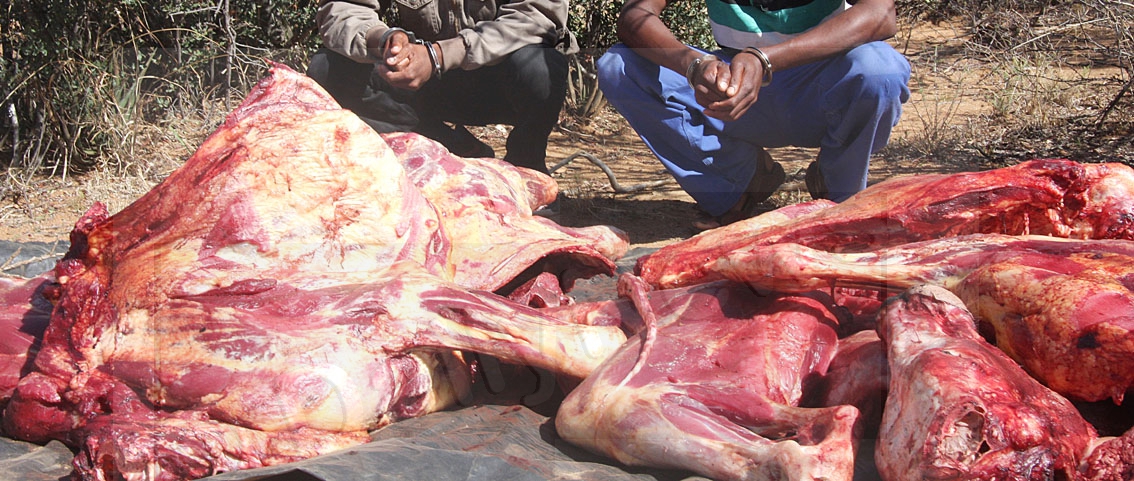Lack of citizen owned banks worries ministry
13 Mar 2023
The Ministry of Finance is concerned about a small number of majority citizen-owned financial intermediaries in financial services, particularly lack of citizen-owned banks.
Answering a question in Parliament recently, finance minister, Ms Peggy Serame said over the years, BoB had received banking license enquiries and applications from citizens and accordingly processed them, but were not successful because they did not meet the requirements to be issued with a banking licence.
Minister Serame confirmed that Bank of Botswana (BoB) had a framework that regulated and monitored licensed bank charges in line with its Act.
She said such provision required a licensed bank to submit any proposed banking tariff schedule being either in fees, commissions and service charges for assessment for fairness and reasonableness. “This is done in relation to the cost of services provided before the proposed charges could be imposed on customers,” she said.
She explained that consideration was also made on the general price movement and the likely impact on financial inclusion and financial sector development in general.
“In this regard, BoB takes into consideration several factors such as whether the service charge, commission or transaction-based fee is excessive, heavy, transparent and whether such bank charges were likely to undermine financial inclusion objectives or be a disincentive for the public to access banking services in a cost-effective manner,” she added.
Again, she said such considerations had to be balanced against the need for banks to be profitable to anchor their enduring safety and soundness.
She also said although perceptions that bank fees and charges in Botswana were high, empirical evidence had shown that non-interest income derived from bank charges and commissions in Botswana compared favourably to the levels reported elsewhere in the region.
“The Bankers’ Association of Botswana conducted a comparative study on bank charges in 2014, which concluded that within the SACU region, bank charges in South Africa, Namibia and Lesotho were higher than in Botswana by 48 per cent, 76 per cent, and 65 per cent, respectively.
Furthermore, fees charged by banks in Tanzania, Uganda, Zambia and Kenya were 55 per cent, 56 per cent, 142 per cent and 310 per cent, respectively, higher than those charged by Botswana banks,” she explained.
That, she said, therefore indicated competitiveness by regional standards and as a proportion of total income, non-interest income for commercial banks in Botswana averaged 40.4 per cent in 2018, 39.4 per cent in 2019, 38.8 per cent in 2020, 40.5 and 40.4 per cent in 2021 and last year, respectively.
“Despite operating in a low interest rate environment for the past five years, non-interest income as a proportion of total income for banks had remained relatively unchanged at an average of 40 per cent and as a proportion of their total income, such interest has remained relatively unchanged,” she said.
Further, Ms Serame further said based on such matrices it meant that non-interest income derived from bank charges and fees were generally commensurate with the cost of provision of banking services in Botswana.
“My ministry is therefore satisfied that the framework adopted by the Bank of Botswana ensures an appropriate balance between profitability of banks and fair and equitable pricing of banking products and services,” she said.
She said there had not been any observed external spillage or capital flight that could be directly attributed to lack of foreign exchange controls, adding “to the contrary, major trading currencies continue to be readily available in the market to warrant any concern about the unintended consequences of not having in place exchange controls.”
Member of Parliament for Gaborone Central, Mr Tumisang Mangwegape-Healy had wanted to know how Bank of Botswana assessed and approved requests by commercial banks to increase bank charges and how their non-interest bank charged income compared to regional and global standards.
MP Mangwegape-Healy also wanted to know how, given the record low interest rates, BoB ensured that banks were not trying to maximise profits through non-bank interest charges, especially when what banks paid out as expenses for providing services did not change much annually.
He further wanted to know how lack of foreign exchange controls and price transfer contributed to external spillage of funds that could have been used in the domestic economy for further investments.
The was to ministry state whether it was not concerned by the small number of majority citizen owned financial intermediaries in the financial services, particularly lack of citizen-owned banks. BOPA
Source : BOPA
Author : Olekantse Sennamose
Location : Gaborone
Event : Parliament
Date : 13 Mar 2023



